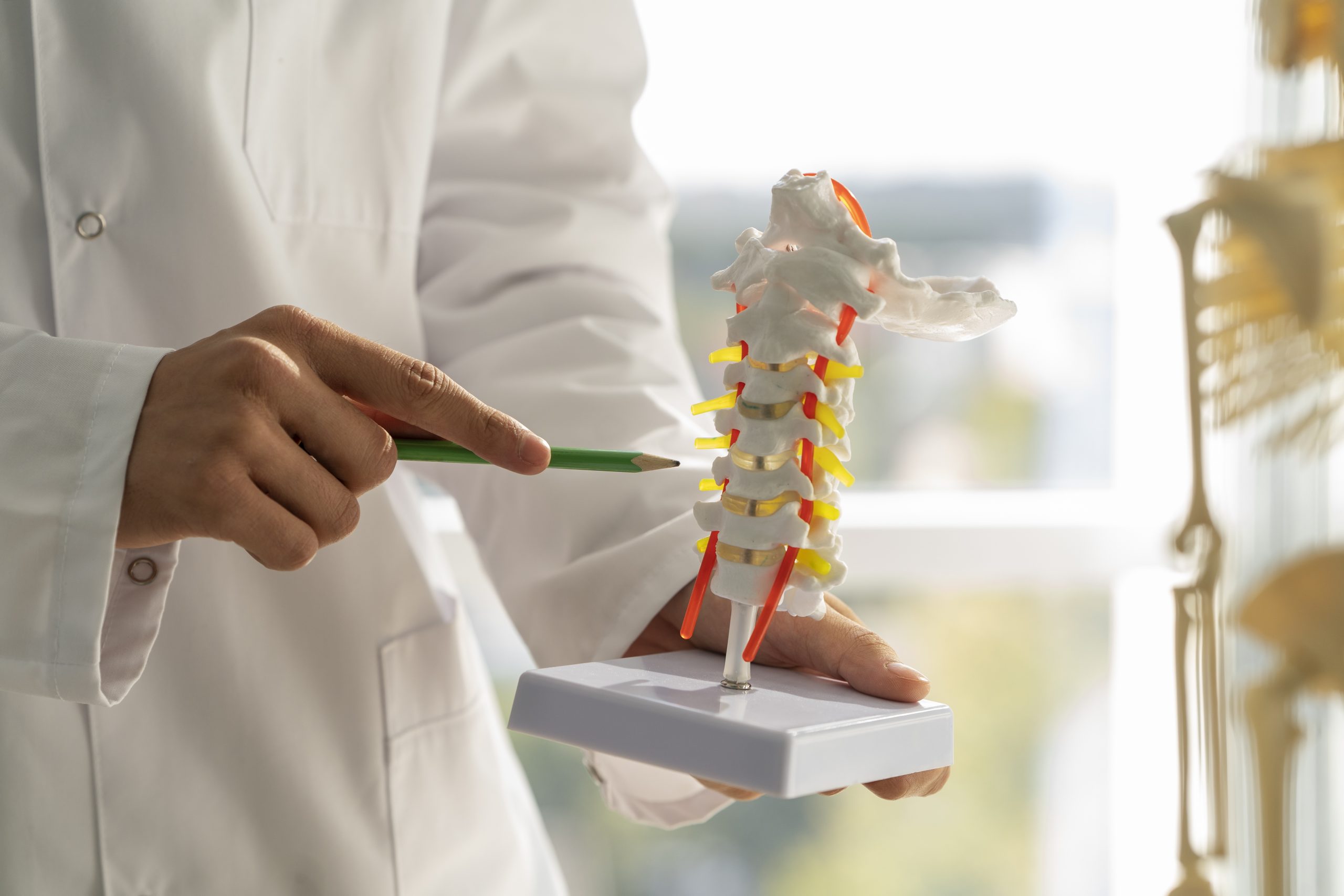
The spinal cord is a crucial part of our central nervous system, serving as the highway for communication between the brain and the rest of the body. Unlike other body parts, the spinal cord doesn’t have the ability to repair the damage it sustains and is very sensitive to injury.
The most common cause of spinal cord injuries is trauma by accident or damage to the spinal cord, disrupting the transmission of signals between the brain and the body. Spinal cord injuries can be of two types
- ⦿ Incomplete: There is some sensation or function remaining below the level of injury. Early medical intervention can help completely recover from this injury.
- ⦿ Complete: The body isn’t functional and has no sensation below the level of injury. Early medical treatment, rigorous rehabilitation and assistive devices can help to remain productive.
The symptoms of a spinal cord injury can vary greatly depending on the location and severity of the injury. Here are some common symptoms to look out for:
- Loss of Sensation: One of the most apparent signs is a loss of sensation below the level of the injury. This means that you may lose the ability to feel touch, pain, or temperature in the affected areas.
- Muscle Weakness or Paralysis: Depending on the extent of the injury, muscle weakness or paralysis can occur. Paralysis can affect specific limbs or even the entire body, leading to conditions like paraplegia or quadriplegia.
- Difficulty Breathing: If the injury occurs higher up the spinal cord, it can affect the muscles needed for breathing, potentially requiring respiratory support.
- Loss of Bowel and Bladder Control: Spinal cord injuries can also disrupt bowel and bladder function, leading to incontinence.
- Changes in Sexual Function: Sexual function can be impaired, affecting fertility and sexual satisfaction.
- Pain: Spinal cord injuries can result in neuropathic pain, which can be persistent and challenging to manage.
Understanding the causes of spinal cord injuries is crucial in preventing them. Here are some common causes:
- 1. Traumatic Injuries: The majority of SCIs result from traumatic accidents such as car crashes, falls, sports injuries, or violence. These injuries often cause immediate and severe damage to the spinal cord.
- 2. Non-Traumatic Injuries: Some spinal cord injuries occur due to non-traumatic factors, like infections, tumours, or degenerative diseases such as spinal stenosis.
- 3. Diving Accidents: Diving into shallow water or improperly executed dives can cause significant spinal cord injuries, often in young adults.
- 4. Medical Procedures: In rare cases, medical procedures like surgery or injections can lead to spinal cord injuries if complications arise.
Minutes matter when it comes to treatment of spinal cord injuries
- 1. Emergency Care: Immediate medical attention is essential to stabilize the patient, prevent complications, and minimize further damage. Immobilization of the spine and providing oxygen are critical steps.
- 2. Surgery: Surgery may be necessary to remove bone fragments, and foreign objects, or to stabilize the spine with hardware.
- 3. Medication: Medications can help manage pain, reduce inflammation, and prevent complications like blood clots or infections.
- 4. Rehabilitation: Physical therapy, occupational therapy, and other rehabilitation programs can help regain function and adapt to their new circumstances.
- 5. Assistive Devices: Depending on the level of injury, patients may require mobility aids, such as wheelchairs or braces, to improve their quality of life.
When it comes to spinal cord injuries, seeking the expertise of the best neurology hospital in Bhubaneswar is of utmost importance. Sum Ultimate has the finest healthcare facilities well-equipped with advanced diagnostic tools, and treatment options and the best neurologists in Odisha who have extensive experience in treating spinal cord injuries.
Dealing with a spinal cord injury can be emotionally challenging. A compassionate neurologist can provide not just medical care but also emotional support to the patient and their family.
Sum Ultimate Neurologist collaborates with a multidisciplinary team of specialists, including physiotherapists, occupational therapists, and psychologists, to provide comprehensive care to the unique needs of spinal cord injury patients.
What sets Sum Ultimate apart is:
- ⦿ Emergency Care: Spinal cord injuries often require immediate attention. The best neurology hospital should have a well-equipped emergency department with 24/7 availability.
- ⦿ Diagnostic Services: State-of-the-art diagnostic tools such as MRI, CT scans, and electromyography (EMG) should be available for accurate assessment of spinal cord injuries.
- ⦿ Surgical Expertise: The hospital should have a team of skilled neurosurgeons experienced in performing spinal cord surgeries when needed.
- ⦿ Rehabilitation Services: Comprehensive rehabilitation programs, including physical therapy, occupational therapy, and psychological support, should be available to aid in the recovery process.
- ⦿ Pain Management: Managing pain, which is often a significant challenge for SCI patients, should be a priority. The hospital should have pain management specialists and access to various pain relief techniques.
- ⦿ Supportive Care: SCI patients often require long-term care and support.
- ⦿ Research and Innovation: A leading neurology hospital should be involved in research and innovation to offer the latest advancements in SCI treatment.
A spinal cord injury can be life-altering, but with the right medical care, it’s possible to regain independence and improve one’s quality of life. When faced with such a challenging situation, it’s crucial to seek the expertise of the best neurologist in Odisha and receive care from the best neurology hospital in Bhubaneswar.
Don’t hesitate to reach out to the best neurology doctors in Bhubaneswar when you or a loved one needs specialized care for a spinal cord injury. Your path to recovery begins with the right team by your side.





